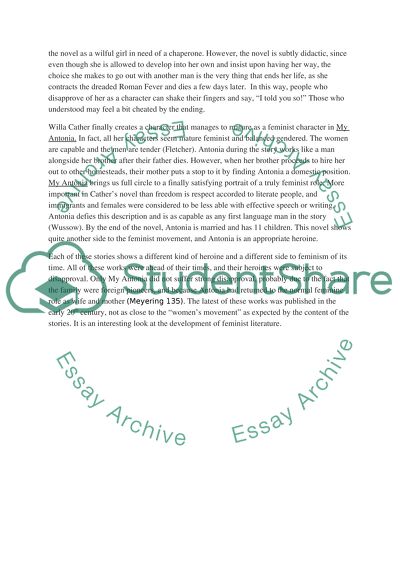Cite this document
(“Literary Development of the Possibility of Feminist Power Essay”, n.d.)
Literary Development of the Possibility of Feminist Power Essay. Retrieved from https://studentshare.org/literature/1490075-my-antonia
Literary Development of the Possibility of Feminist Power Essay. Retrieved from https://studentshare.org/literature/1490075-my-antonia
(Literary Development of the Possibility of Feminist Power Essay)
Literary Development of the Possibility of Feminist Power Essay. https://studentshare.org/literature/1490075-my-antonia.
Literary Development of the Possibility of Feminist Power Essay. https://studentshare.org/literature/1490075-my-antonia.
“Literary Development of the Possibility of Feminist Power Essay”, n.d. https://studentshare.org/literature/1490075-my-antonia.


